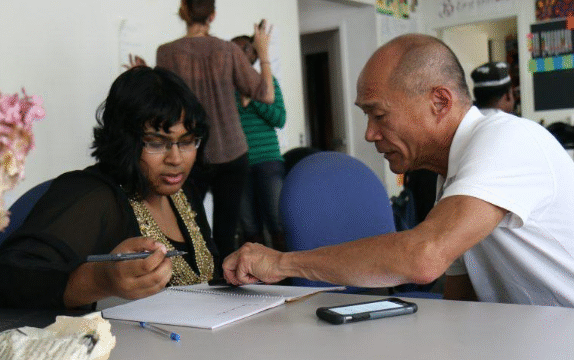Healthcare is one of the most important industries in the world,
and it is constantly growing as communities need more professionals
to keep up with medical advances and patient care. For people
who want to be part of this field but may not have years to commit to medical school, learning certificates can be a great way to enter the industry or enhance existing skills. These programs provide targeted training, often in less time than a degree, and help individuals qualify for essential healthcare roles. Whether someone is just starting their journey or looking to expand their knowledge, learning certificates can open doors to rewarding opportunities in hospitals, clinics, and care facilities.
One of the main advantages of healthcare certificates is that they allow people to specialize in specific areas. Instead of taking a broad approach like traditional degree programs, certificates focus on a set of skills that are directly tied to job responsibilities. For example, a certificate in medical billing and coding equips learners with the knowledge to handle insurance claims, medical terminology, and healthcare data management. Similarly, a certificate in phlebotomy prepares someone to work as a technician drawing blood samples, which is a role found in nearly every healthcare setting. By concentrating on practical skills, these certificates help learners quickly transition into the workforce.
Many people are drawn to healthcare certificates because they are accessible and flexible. Unlike traditional medical degrees that often require years of study, certificate programs can range from a few months to a year. This shorter duration makes them attractive for career changers, individuals returning to school, or those who want to gain specialized knowledge without committing to a long academic path. Additionally, many programs are available online, giving learners the chance to study at their own pace while balancing work and family responsibilities. This flexibility is especially important in healthcare, where many professionals work long shifts and need learning options that fit their schedules.
Healthcare is also a field that places a strong emphasis on continuous learning. Even after earning a certificate, professionals are encouraged to pursue additional training to stay current with advancements. For example, someone who begins with a certificate in medical assisting may later choose to earn a certificate in healthcare administration, expanding their ability to take on leadership responsibilities. Others may pursue advanced certificates in specialized areas such as patient care technology, electronic health records, or emergency response. This layering of certificates allows healthcare workers to steadily grow their careers and take on more responsibilities over time.
Another important factor to consider is that certificates can enhance employability. Employers in healthcare often look for candidates who are not only compassionate but also well-trained in the technical aspects of patient care. A certificate shows that an individual has completed formal training and is prepared for specific job duties. For example, a nursing assistant certificate assures employers that the candidate has practiced essential skills like monitoring vital signs, assisting patients with daily activities, and understanding safety protocols. In a field where trust and accuracy are vital, certificates provide reassurance to both employers and patients.
It is also worth noting that learning certificates can serve as a stepping stone to more advanced education. Many healthcare professionals begin their careers with a certificate and later decide to pursue a degree in nursing, healthcare administration, or public health. The certificate gives them real-world experience and confidence, making the transition to a degree smoother. In some cases, credits from certificate programs may even transfer into degree programs, reducing the time and cost of further education. This pathway makes certificates an excellent option for those who want to test the waters of healthcare before committing to longer-term studies.
Cost is another advantage of certificates compared to traditional degree programs. Because they are shorter and more focused, certificate programs often come with lower tuition fees. This makes them accessible to a wider range of learners, including those who may not have the financial resources for a full degree. Combined with the potential for quicker entry into the workforce, certificates can be a cost-effective way to begin earning in healthcare while still gaining valuable professional credentials.
Healthcare is not just about doctors and nurses. It is a vast field with many roles that support patient care and medical services. Certificates exist for a wide range of careers, from pharmacy technicians to medical transcriptionists, from dental assistants to surgical technologists. Each role is essential in its own way, contributing to the smooth functioning of healthcare facilities. For example, surgical technologists prepare operating rooms and assist during surgeries, while pharmacy technicians help manage prescriptions and advise patients on medication use. These roles may not require a medical degree, but they do require specialized knowledge that certificates provide.
The demand for healthcare workers also makes certificates especially valuable. Populations are growing, and people are living longer, which increases the need for medical services. At the same time, technology is transforming the way healthcare is delivered, from telemedicine to electronic health record systems. Certificates that focus on emerging areas, such as healthcare information technology or patient data management, prepare learners for roles that will only become more important in the future. In this way, certificates not only meet current needs but also position individuals for long-term career growth.
In addition to technical training, certificate programs often emphasize soft skills that are critical in healthcare. Communication, empathy, teamwork, and problem-solving are just as important as knowing how to operate medical equipment. Many certificate programs incorporate training in patient interaction, cultural sensitivity, and ethical practices. This holistic approach ensures that certificate holders are prepared not just to perform tasks but to provide compassionate and respectful care to patients from all walks of life.
For those who are already working in healthcare, certificates can also serve as a way to refresh skills or qualify for promotions. For example, a certified nursing assistant may pursue a certificate in medication administration to expand their responsibilities. A healthcare administrator might complete a certificate in leadership or project management to take on more complex roles within an organization. In competitive job markets, these additional credentials can make a significant difference.
Ultimately, learning certificates in healthcare careers are about creating opportunities. They provide entry points into the medical field for those who want to start working sooner, while also offering pathways for advancement to those already employed. They are flexible, cost-effective, and targeted, making them a practical choice for many learners. Most importantly, they help ensure that patients receive safe, skilled, and compassionate care by training professionals who are well-prepared for their roles.
As healthcare continues to evolve, certificates will remain a valuable tool for both new and experienced workers. They align education with industry needs, provide opportunities for lifelong learning, and help build a workforce that is adaptable, skilled, and dedicated to improving lives. For anyone considering a career in healthcare or looking to grow within it, earning a learning certificate can be one of the smartest steps to take.






